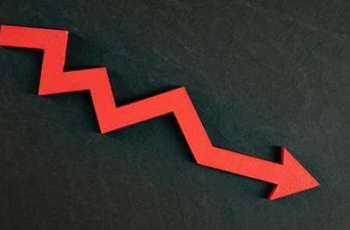WASHINGTON (Pakistan Point News / Sputnik - 07th February, 2023) Larger budget deficits and higher debt-to-GDP ratios are expected through 2025 as helpful fiscal tailwinds that emerged after the outbreak of the coronavirus pandemic are fading, Fitch Ratings said on Monday.
"We expect larger deficits and a rising debt-to-GDP ratio in the next two years," Fitch said a statement. "Spending challenges in relation to healthcare and social security will rise steadily in the next decade."
While fiscal tailwinds after the COVID-19 outbreak alleviated damage done to GDP by the pandemic measures, "slower economic growth and falling inflation will curtail recent strong revenue increases," Fitch said.
Beyond that, "rising interest costs and cost-of-living measures are feeding into higher spending", the ratings agency said.
Fitch noted that US Federal deficit halved in fiscal year 2022 to $1.375 trillion, or 5.5% of GDP, after two years of very large deficits driven largely by pandemic-related measures.
But preliminary data for the first quarter of fiscal 2023 showed that the federal deficit widened by nearly 12% versus a year earlier to $421 billion.
"This reflected both revenue declines and spending measures, including higher social security outlays and debt interest costs," Fitch said.
Since July 2022, when it last reviewed the US sovereign rating, Fitch said it has lowered its growth forecast and raised the US policy rate forecast instead. Its forecast for the federal government deficit stands at 5.5% of GDP for fiscal 2023, versus 4.8% in July, Fitch said.
"We consider the US to have a higher debt tolerance than other 'AAA' sovereigns, and the reserve-currency status of the US Dollar provides tremendous financing flexibility," Fitch said. "Nevertheless, higher interest rates mean that the interest burden is rising."
Fitch's remarks on the US credit rating come as President Joe Biden and his Democrat lawmakers are caught in a congressional fight with Republicans over the need to raise the country's official debt ceiling.
The debt limit drama has become a yearly political fight in Congress between the two parties. A drawn-out struggle to raise the nation's debt ceiling in 2011 triggered a financial crisis that culminated in major credit rating agency Standard & Poor's stripping the United States of its top triple-A credit status.
The Treasury Department announced last month that it has taken "extraordinary measures" to avoid a debt default by temporarily suspending payments not immediately needed by federal retirement, disability and health benefit funds and channeling the money instead to other urgent services needed to keep the government running until June at least.



